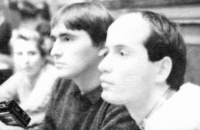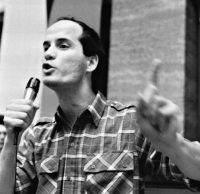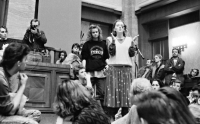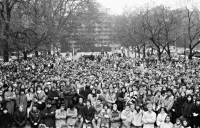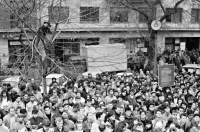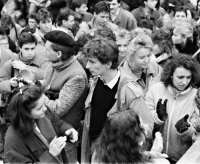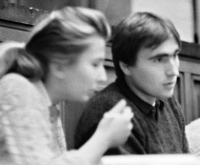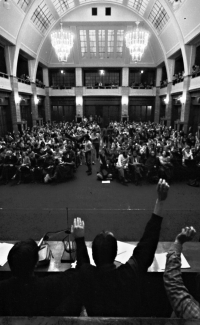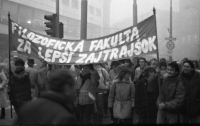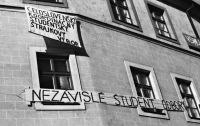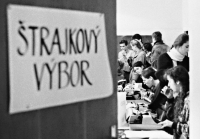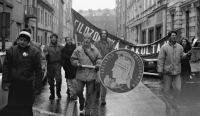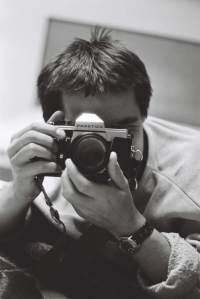State security wanted the film from my camera. And I have to admit, I gave it to them, which I still regret
Download image
Marián Sedílek was born in Ružomberok in 1968. He grew up in Piešťany, where his family moved due to his fathers ‘job as car mechanic and deck technician. Marian attended elementary school and gymnasium. He was accepted to study journalism at Comenius University only as a result of an appeal to the minister. He participated in a student march on 16th November 1989 before the Velvet Revolution, then he was one of the participants of student´s movement in Commenius University. After completing his studies in 1990, he worked in the weekly magazine Mladé rozlety. After the service he started to work in the Sunday supplement of the newspaper Smena, in 1993 he left for SME and in the same year he returned to Nitra, where he lived with his wife. In 1996 he decided to enter the field of public relations.
